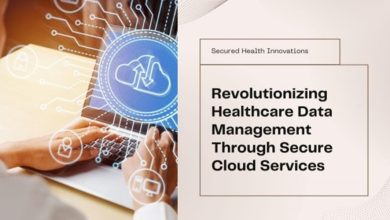2024's New Era of Remote Work Dynamics

As we navigate through 2024, the evolution towards remote work has become a defining trend, reshaping the way we think about work on a global scale. This era is marked by significant technological progress and changing expectations from the workforce, spotlighting the crucial role of cloud security in this new landscape.
The ability for businesses to operate remotely has unlocked levels of flexibility and talent accessibility previously unimagined. Yet, this shift introduces heightened security concerns, with corporate data and applications now more exposed in the cloud, raising the specter of increased cyber threats.
A telling statistic sheds light on the situation: “63% of businesses have experienced a data breach due to employees working remotely.” This statistic underscores the imperative for stringent cloud security protocols to safeguard sensitive data in our digitized work environments.
Exploring Cloud Security in Remote Work Conditions
The pivot to cloud-based operations to enable remote work has unveiled specific vulnerabilities and obstacles, distinct from those in conventional office setups.
Phishing schemes, increasingly elaborate, now specifically target remote workers who handle sensitive data in the cloud. These schemes often mimic authentic communications from cloud providers, deceiving employees into surrendering their credentials. A striking 80% of companies report a spike in email phishing attempts with the onset of remote work.
Another point of concern is the vulnerability of home networks, often lacking in robust security, offering cybercriminals easy access to corporate cloud resources.
Ransomware, too, has emerged as a formidable threat, with attacks encrypting organizational data and holding it hostage. These incidents not only halt operations but also compromise the privacy and integrity of data.
For businesses, establishing comprehensive security measures and educating employees about the landscape of threats is essential for maintaining secure IT services.
Key Security Measures for Remote Operations
Data encryption emerges as a critical defense, ensuring data’s indecipherability to unauthorized parties, whether stored or during transmission.
Secure Wi-Fi use is another fundamental aspect, with businesses needing to guarantee that their remote teams access corporate assets over protected, encrypted connections.
Multi-factor authentication (MFA) introduces additional security layers, making unauthorized access difficult even if credentials are compromised.
Cloud providers are instrumental in this ecosystem, offering essential security functionalities and adherence to regulatory standards, thus allowing businesses to concentrate on their primary goals within a secure cloud setup.
Leveraging AI for Enhanced Security
AI-driven security technologies offer a new dimension in cyber defense, with their ability to discern patterns, identify anomalies, and preempt threats with remarkable precision. For remote setups, this means potential security issues can be recognized and addressed swiftly, forestalling harm.
Adopting advanced security methodologies, like zero-trust frameworks, and AI for threat anticipation, businesses can better shield their remote workforce from emerging cyber risks.
Instilling a Security-first Mindset in Remote Teams
Fostering a security-conscious culture begins with thorough training on cyber threats and safe online behaviors. By making employees aware of the risks and their part in mitigating them, businesses can significantly lower the likelihood of breaches.
It’s crucial for employees to see security as a collective responsibility. Continual education ensures that security remains a priority, adapting to new threats over time.
Open dialogues about security concerns further empower swift, effective risk management.
Data Privacy and Regulatory Adherence Remotely
Adapting to varying legal and regulatory landscapes is vital, with regulations like Europe’s GDPR and California’s CCPA setting the benchmark. Businesses must tailor their data privacy strategies to these diverse standards, incorporating encryption, access management, and regular audits into their compliance frameworks.
Continuous Security Evaluation and Enhancement
Scheduled security assessments enable businesses to evaluate their defensive strategies critically, ensuring alignment with current best practices and regulatory demands.
Coupled with ongoing monitoring for real-time threat detection, these practices fortify a company’s defense mechanisms, enabling rapid responses to security incidents.
Securing the Future of Remote Work
Adopting a proactive and dynamic stance towards cloud security is essential as remote work becomes prevalent. Through advanced security solutions, a strong culture of security awareness, and commitment to continuous improvement, businesses can secure their digital and operational assets against the backdrop of 2024’s work environment.
This journey towards a secure remote working model is an ongoing process, emphasizing the need for diligence, flexibility, and shared responsibility across all organizational levels. In today’s digital age, establishing a secure and compliant remote work ecosystem is not only essential but serves as a competitive edge, pivotal to the resilience and success of businesses moving forward..





